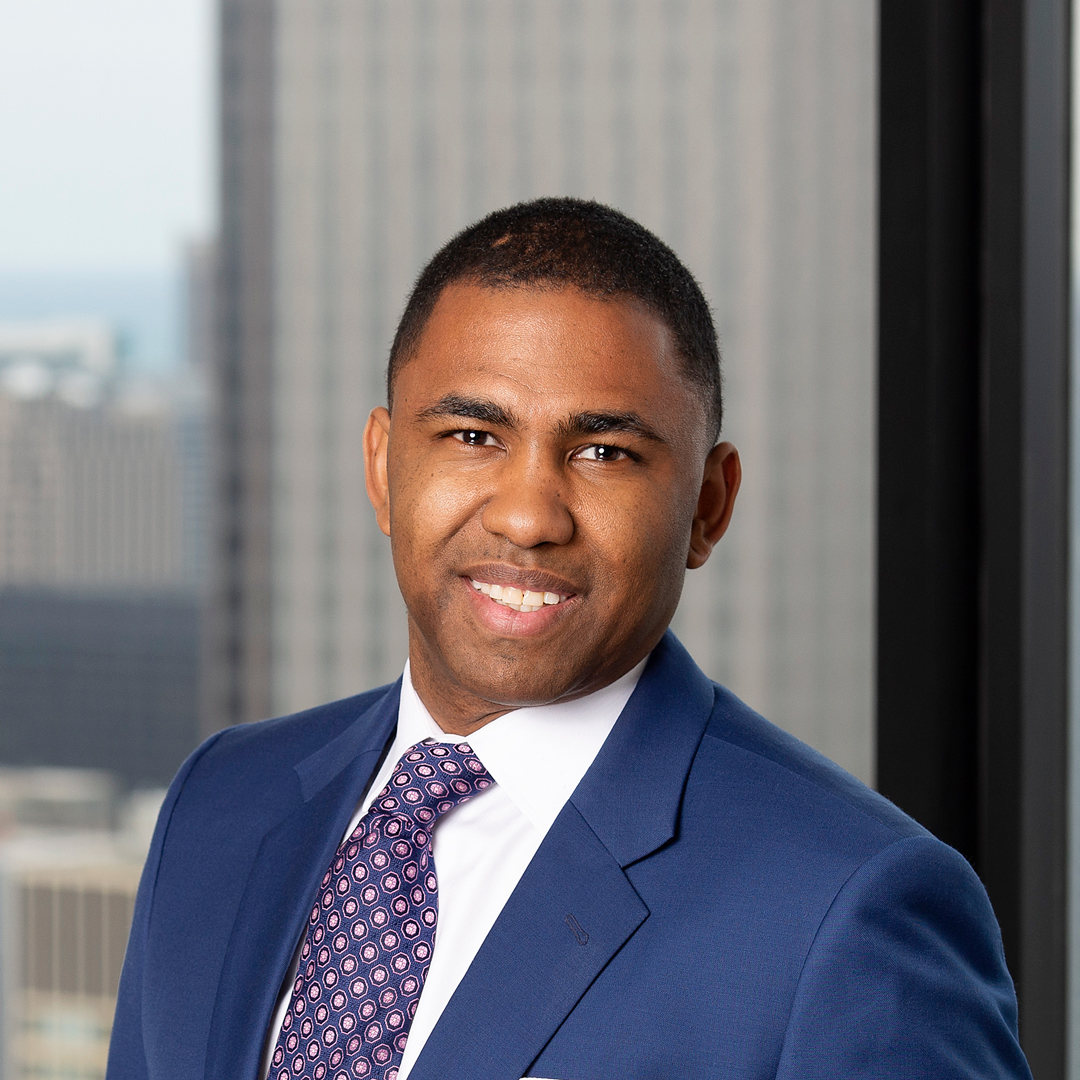|
Getting your Trinity Audio player ready...
|
Adraea Brown has moved fast, and it’s not just because she works for Harley-Davidson. Since 2015, Brown has been promoted three times. Her overall track record includes four roles at Harley and a previous practice role. In her law school days, she honed her skills through a clerkship and during a stint at a law firm. Her successes are particularly remarkable given that she only graduated from law school in 2010.
Brown now acts as assistant general counsel of trademarks for the most famous name in motorcycles. She brings both a steady hand and a youthful embrace of intelligent risk to her role, thereby keeping Harley-Davidson ahead of the pack.
Millennials are already a vast part of the workforce and have been shaping workplace culture for years. Still, few in-house attorneys have moved up as quickly as Brown so early in their careers. The lawyer’s rapid rise places her in the position of providing counsel for people who may be decades her senior. But the AGC doesn’t see it that way at all. Rather, she sees herself as the beneficiary of both naivete on her own part and the valuable experience of others.
Modern Counsel spoke with Brown about what a millennial can bring to an established organization, the looming reality of Generation Z entering the professional ranks, and what has kept her burning rubber in terms of career advancement, if not on her own Harley motorcycle.

From clerking for a circuit court judge to working for an internationally known brand, what skills have you learned that have helped you rise so quickly in your career?
I have certainly learned a lot of skills along the way. My first experience with a judge was with a criminal docket. This clerkship taught me not only about the law but about the immense impact we can have as attorneys on people’s lives. People generally seek attorneys when they are in need of assistance. I don’t know many (or any) who retain them for fun. Having this experience early in my career truly put the human aspect in perspective. Regardless of whether the matters are criminal or civil in nature, our work can impact people’s livelihoods. Once I internalized that, I approached the way I thought about my role very differently.
While I have learned many additional lessons and skills along the way, if I had to think about a few of the pointers I give most often and ensure I follow, they are to look for gaps, anticipate questions, and manage up. These skills guide my career the most.
- Look for gaps: I’m a problem-solver at heart. I like working to find solutions to improve work. I have adopted that mindset in working to be proactive in finding where things can be improved, what work needs to be done, and where gaps may exist. Remaining complacent and just continuing to work under the status quo adds little to the business. Many people can do assigned tasks; the value lies in thinking of how to make those tasks easier.
- Anticipate questions: I learned this lesson very early on—think about and anticipate all questions that may come from your ideas or work. This may seem like common knowledge, but I see this thought process consistently neglected. When I present a problem, I also provide a solution, and I ensure that I’ve thought through and prepared a response to all questions or alternative theories that may be asked of me. This is a great skill because in addition to ensuring that you’re prepared, it allows your team, your clients, and your manager to see your analytical process. Even if your proposed solution isn’t the ‘right’ answer, the ability to show and articulate your analytical process will be appreciated and noticed.
- Manage up: Essentially, this means know your audience. One unwritten element of my role is to make my manager’s job easier. Very early in my career, I just presented material in the way that I understood and liked it. Unfortunately, that was not necessarily the way that worked best for my manager. Once I really thought about my role and how it operated in the larger scheme of the company, I realized that I was there to function as support—to assist. If I’m creating more work, I’m less valuable. If my manager feels confident in my thought process, and I can make all the decisions related to my work very easy for him, then I’m an asset. Really taking the time to understand your manager and what makes them tick and how they like to be communicated with is a skill that continues to serve me well.
Are there any lessons you learned early on that may have hamstrung other attorneys in their own career journeys?
Similar to the question above, I think failure to understand their roles in the greater organization is something that can be challenging for other attorneys. Attorneys are opinionated people by nature, and many think they’re right all the time—including me. While that confidence keeps us sharp, we must learn how best to flex that attribute. Everyone has a role to play on the team, which means that everyone can’t be the leader. There must be people who are followers.
While this isn’t surprising, learning how to work isn’t part of legal education. We’re taught to be a lawyer, but not to be an associate or in-house counsel within an organization. Instead, we’re expected to understand how to navigate our roles. To be honest, even when role expectations are clearly communicated, there are people who still struggle with this.
The attorneys I’ve seen progress the best are those who work to learn and understand their role—and how to bring the most value to the role and their manager. Working in-house, your manager is often in a place to be your biggest cheerleader, so it’s vital that you do your best to make your manager’s job as easy as possible.
Subscribe Now
Receive stories like this one in your inbox every two weeks!
Subscribe to the free Modern Counsel newsletter.
From the start of your career to where you are now, were there any leaders who failed to understand the up-and-coming millennials generation and the value that you brought to the table?
Honestly, no. Thus far in my career, I really haven’t dealt with that. I can understand that many may not be so lucky. I certainly had opposing counsel who worked to intimidate me in the courtroom or across the mediation table, but overall, they weren’t impacting my career. In essence, they were only underestimating me as their opponent.
One thing that’s great for millennials is understanding the benefits of working from home or somewhere that’s not in the office. Prior to the COVID-19 pandemic, working outside of the office was not widely accepted. The pandemic has proven that people can be just as successful—if not more—given the ability to work from home.
On the other hand, were there any leaders who showed interest, curiosity, and a thirst to learn more when it came to new generations entering the workforce? How did you go about working with them? What did these interactions and relationships enable you to do and become?
I had leaders who treated me as a team member. I don’t think anyone had a particular interest or curiosity for newer generations generally, but I had leaders and others who were interested in the fresh perspective I could bring by virtue of my experience, or even lack thereof. That’s what I prefer, rather than someone who is only interested in my age. The same way I don’t want someone interested in me because I’m a woman or because I’m Black.
In working with people who were interested in my fresh perspective, we were able to learn from each other. I would work to understand their experience and expertise, and I would then bounce my ideas off of them. This allowed me to anticipate questions and navigate theoretical landmines. Working together collaboratively allowed us to trust one another. I work to understand people as individuals—what makes them tick.
Luckily, I’ve had many leaders who feel the same way. There are times when I may have lacked the confidence to speak out, but I learned that once I did, my ideas and opinions were respected and valued. But I definitely think that it helped that I was well prepared as I established my credibility.
As the oldest millennials are rounding the corner, turning forty and becoming the new leaders within organizations, they now have a new responsibility to support and understand a new generation entering the workforce: Gen Z. What are your thoughts on how millennial leaders can support and assist this new generation?
Good question. Millennial leaders should work to remain flexible and not set in any specific ways. I hate generalizations overall, but I know that many millennials complain about the inflexibility of baby boomers and those with antiquated views of technology or just a different way of doing things. That was tough for many millennials. Given that, it’s important that millennials don’t become that to Gen Z.
Gen Z has grown up in a much different world than I did. While this means that their viewpoints may be different than mine, that doesn’t make them any less valuable. As a society, we need to embrace fresh perspectives so that we can continue to improve. While Gen Z can learn a lot from the experience of millennials (as well as that of Gen X and boomers), we can all stand to learn a lot from them.
It’s easy to look to people of a certain age as having wisdom and experience. What do you think your relative youth provides you in your role? What can being ‘the young one’ provide in terms of advantages?
One of the greatest advantages of being young is being ignorant. I often draw analogies to babies as they are learning about the world. For example, I’ve seen babies playing in the middle of their parents’ bed and slowly inching closer and closer to the edge. At some point, they just launch themselves off. Why? They have no fear of the edge or the implications of falling because that’s not something they’ve encountered before. They just do it. That ignorance allows them to take risks. Sometimes it pays off, and other times it doesn’t.
It’s a very similar to navigating professional life. Being younger, you’re often less risk averse because you may not have had experience with everything in the area and will take risks— sometimes even when you don’t realize it. This is where those with less experience and those with more can work well together if they can learn to appreciate the other’s perspective. The one with experience can warn the one without of the prospective pitfalls, and the one without experience can think of ways to overcome it. It should hopefully avoid the conclusion of ‘we tried that before, and it never works.’ No, in reality, it just may have never worked the way you tried it. Oh—also, none of the brave babies mentioned above were ever injured.
What’s the fastest speed you’ve ever reached?
On my motorcycle? Admittedly, I don’t have a ‘need for speed.’ I think I once got up to 85 mph but quickly eased off the throttle.


